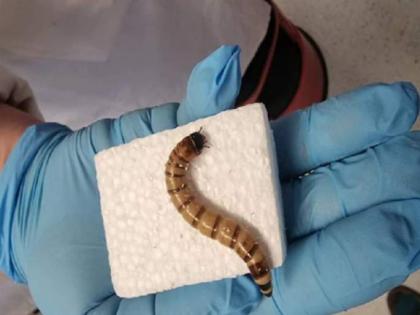Plastic eating superworms offer hope for recycling
By Lokmat English Desk | Updated: June 10, 2022 16:29 IST2022-06-10T16:28:33+5:302022-06-10T16:29:37+5:30
The world produces 300 million tons of plastic every year, and scientists are concerned about its disposal. Many years ...

Plastic eating superworms offer hope for recycling
The world produces 300 million tons of plastic every year, and scientists are concerned about its disposal. Many years of research on plastic decomposition began. But now a team of scientists from Australia has found a solution to this problem. Scientists have discovered an insect that eats plastic and destroys it. Australian scientists have discovered an insect called Jofobas Morio. This worm is commonly referred to as a superworm. These insects can survive by eating polystyrene. Researchers claim that this species of plastic-eating insect could revolutionize the field of plastic recycling.
"Superworms work like mini-recycling plants. They absorb polystyrene and give it to the bacteria in us," said Dr. Said Chris Rinke. A team from the University of Queensland tested the insects with a variety of foods over a three-week period. It was found that a group of insects that ate polystyrene gained weight. The team then examined the internal processes of the worms and found that they had the potential to eliminate polystyrene and styrene. But it is doubtful how much this research will help in the decomposition of large-scale plastics. So scientists are still trying to figure out which abilities are most effective in these insects. So that they can be used for plastic recycling.
Worldwide, 300 million tons of plastic is produced and produced every year. Europe accounts for 26 per cent (6.6 million tonnes) of world plastic production. At the same time, 38% of the plastic is decomposed in the soil. In the United States in 20212, only nine percent (2.8 million tons) of plastic was recycled. The remaining 32 million tons of plastic was thrown away. According to research published in Microbial Genomics, the worm breaks down the chemical composition of the plastic, and 100 such worms can destroy 92 mg of polyethylene in 12 hours. With their help, the problem of pollution caused by plastics will be reduced.
Open in app